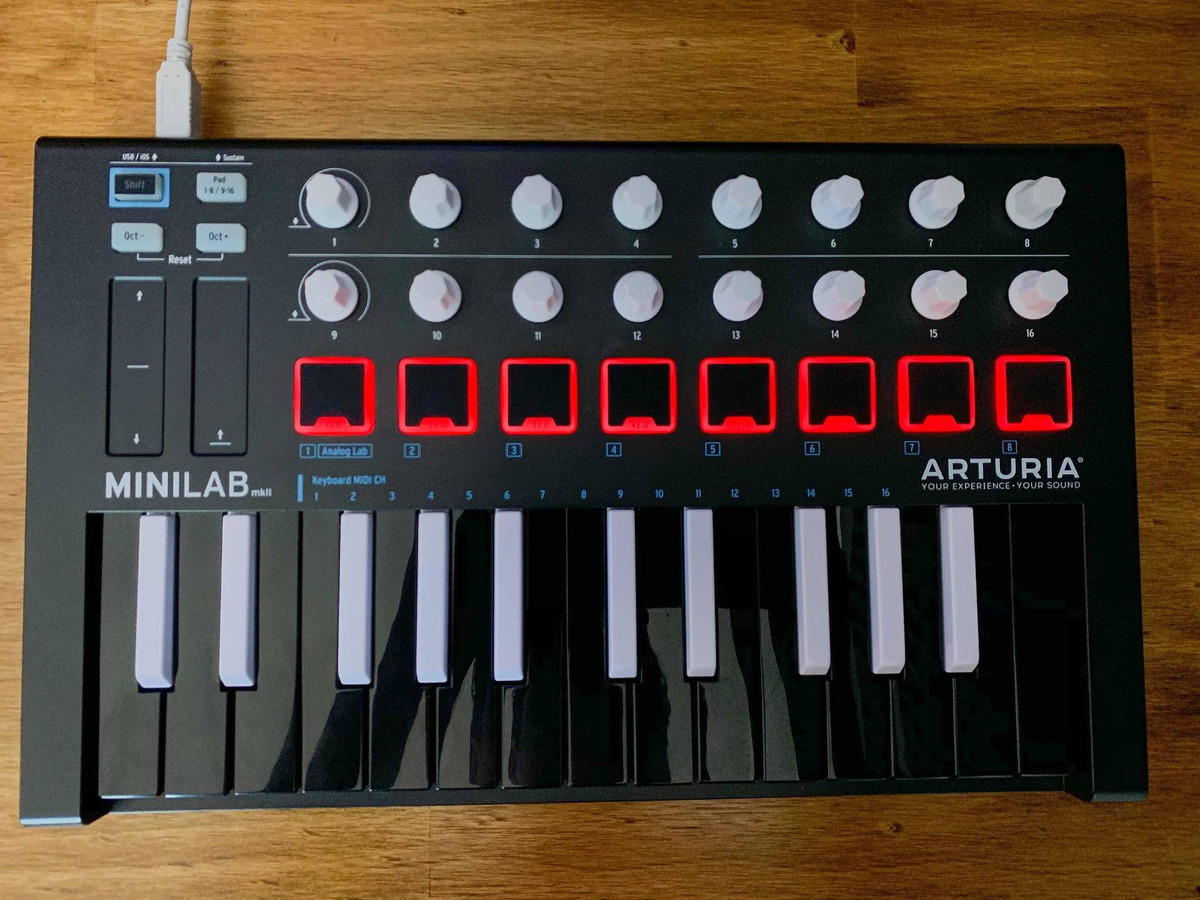
That would really help push it over the edge in making it super portable, and while it may have been excluded for cost-cutting purposes, we think making the device an extra $10 or so would have been worth having a carry bag. It’s clear that the MiniLab MKII is aimed at portability, but we can’t help but wish Arturia included a carry bag of some kind in the package, like it did with the MicroBrute SE we reviewed. It might perhaps have been nice to get some MIDI ports too so you can control sounds that aren’t on your computer. That idea of simplicity is carried on over to the number of ports available - in fact, you only get a USB port and a sustain port.

On the top left of the keyboard, you’ll also find a pitch and modulation wheel, as well as a pad switch button, which lets you change from pads 1-8 to 9-16, and octave up and down buttons - which are super helpful considering the size of the keyboard. With 25 keys, 16 knobs, and 8 pads, Arturia really seems to have hit the sweet spot between functionality and portability.

Just because the keyboard is simple, however, that doesn’t mean that it doesn’t have a lot to offer. Simplicity is the key behind the Arturia MiniLab MKII - it’s sleek, stylish, and even the software that it uses - Analog Lab 2, is a lot sleeker than its predecessor. Yes, you’ll still get the wooden accents, but they’re far more subtle - and, dare we say, classier. While that looked great, it’s well and truly time for Arturia’s controllers to evolve, and the MiniLab MKII is the embodiment of that. Arturia has gone a slightly different route than previous MIDI controllers, which far more heavily featured wood - in fact, the entire side of the keyboards was made of wood. The installation of all of those pieces of software is very straightforward, and they’re all downloaded from your account after you register. That’s not a bad little bundle, especially considering the fact that it all comes with a controller that costs less than $150. With the MiniLab MKII, you’ll get Arturia’s Analog Lab Lite, as well as Ableton Live Lite, the UVI Grand Piano, and Arturia’s MINI Control Center. If you don’t already have an Arturia account, you’ll need to create one, after which you can simply enter in the registration code and and “unlock code” to register the device to your account. Setting up the MiniLab MKII was actually quite a breeze.


 0 kommentar(er)
0 kommentar(er)
